|
SANTA FE – The New Mexico Department of Health has issued a public health order to help ensure all New Mexicans can access the COVID-19 vaccine.
The order comes in response to some pharmacies announcing they cannot administer the vaccine in New Mexico unless recommended by the Advisory Committee on Immunization Practices (ACIP), an advisory group to the Centers for Disease Control and Prevention, which has yet to convene and act on the matter. The order directs New Mexico Department of Health (NMDOH) to work with New Mexico’s Board of Pharmacy to remove potential barriers and ensure access to COVID-19 vaccines at pharmacies across the state. This week, the U.S. Food and Drug Administration approved the updated COVID-19 vaccine formulations, although with a narrower range than prior seasons. The state expects the updated COVID-19 vaccine to start arriving in New Mexico within the next few weeks. “It’s important for New Mexicans to know the New Mexico Department of Health is committed to keeping residents safe as we enter the 2025 – 2026 respiratory virus season,” said Health Secretary Gina DeBlassie. “This order will remove obstacles to vaccination access.” There are no issues with pharmacies administering the influenza vaccine in the state as the ACIP has recommended that vaccine for persons aged six months and older. A copy of the public health order is available on the NMDOH website.
0 Comments
By Karima Alavi
1994: First Step in a 29-year Tradition: From 1994-2023 a series of 34 professional development programs for educators took place at Dar al Islam in Abiquiu, New Mexico. Attendees of the free program included primary-level teachers to university professors, librarians, and state Social Studies Coordinators. The goal of this program was to enable educators to teach about Islam with confidence. The Dar al Islam Teachers’ Institute is the only summer teachers’ institute on Islam presented by Muslim faculty, while housing participants in a Mosque/Madrassa complex where teachers are surrounded by Muslims participating in their daily faith practice. The program was unique in the nation, possibly even in the world. Through lectures, free time spent on campus with faculty, and through dinner discussions, participants gained a deeper understanding of the basic tenets of Islam. Questions addressed during the two-week residential Institute included:
The first institute was initiated and directed in 1994 by Audrey Shabbas, Founder of AWAIR (Arab World and Islamic Resources). She was an early trailblazer in the field of publishing teaching resources for use by educators covering subjects such as Islamic history, art, and Arab culture in the classroom. The 1994 institute was funded by a one-year grant from the National Endowment for the Humanities. After the first year, it was Dar al Islam funding that enabled the program to continue. Subsequent directors of the program were me, Rehana Shafi, and Susan Douglass who is considered by many to be the country’s most prolific developer of pre-college curriculum in the field of Islamic studies. Institute Faculty and lecturers have come from across the U.S. and from abroad. One of the original professors was the British scholar, Dr. Abdul Hakim Murad who founded Cambridge University’s Muslim College. Known for his brilliant lectures, he also has a reputation for having a serious, no-nonsense demeaner which is precisely why he was used, with much humor, in one of the many remakes of Pharrell Williams’ video “I’m Happy.” Looking for something to cheer you up? Check out this video, “Happy British Muslims” on YouTube https://www.youtube.com/watch?v=gVDIXqILqSM
Other faculty have come from a variety of universities across the United States, including Georgetown, University of Virginia, Temple, Emory, UC Berkeley and many others. One of the earliest faculty members was Hamza Yusuf, an American Muslim who founded California’s Zaytuna College, a private liberal arts school that became the first accredited Muslim undergraduate college in the United States.
Professor Sulayman Nyang, originally from Gambia, developed the African Voices display at the Smithsonian’s Museum of Natural History and served on the board of America’s Islamic Heritage Museum that preserves and archives the history of American Muslims since the inception of the republic.
Dar al Islam’s Outreach Beyond Abiquiu:
With the support of Dr. Mohammad Shafi, former chair of the Dar al Islam board, the Teachers’ Institute became known among American educators, school boards, and state Social Studies Coordinators. Soon Dar al Islam’s commitment to teachers led to outreach that went far beyond Abiquiu. Between myself and Susan Douglass, fellow institute faculty and director, we offered over 100 workshops at organizations such as the National Council for the Social Studies, the World History Association, the Library of Congress, the Smithsonian Institution, and many others. We covered such subjects as Sacred Architecture, Islamic Spain as a Cultural Crossroad, Trade and Commerce Along the Silk Road, Teaching About Imperialism, and Jesus and Mary within an Islamic Paradigm.
A nationally known curriculum developer, when Susan Douglass isn’t teaching at Dar al Islam, or working in educational outreach at Georgetown University, her work has led her to serve in the United Nations Alliance of Civilizations Initiative, and as an Affiliated Scholar with the Council on Islamic Education, where she reviewed commercial textbooks while reporting on the development of state and national academic standards. She has contributed to teaching resources for the National Center for History in the Schools, Smithsonian National Museum of Asian Art, and the online curriculum World History for Us All, as well as The Indian Ocean in World History website, and the NEH/ALA project Bridging Cultures Bookshelf/Muslim Journeys.
Other alumni have remained in touch through Facebook, sharing photos of their classrooms (that often reflect what they learned in Abiquiu), or simply expressing their love of teaching and enthusiasm for tackling big questions in their curriculum such as “Who was that Ibn Battuta guy, and why should we care?”
Finally, if you would like to watch a video on the Dar al Islam Teachers’ Institute, go to
“What makes Dar al Islam unique as a place of learning is, first and foremost, how beautiful it is. The architecture is beautiful, the natural environment is beautiful. A lot of things we speak about in our lectures, participants actually see in the architecture, in the designs, in the patterns.” 2023 Faculty, Oludamini Ogunnaike
“It gives me some confidence to know that I’ve been taught by the finest academic scholars in our country.” 2023 Teacher-participant, Luz Antonio |
Submit your ideas for local feature articles
Profiles Gardening Recipes Observations Birding Essays Hiking AuthorsYou! Archives
October 2025
Categories
All
|
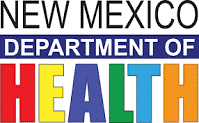
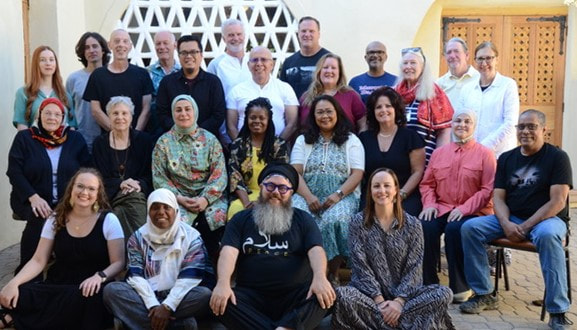
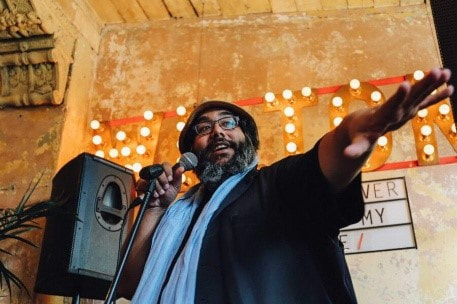
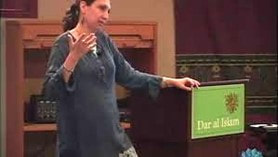
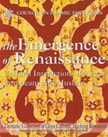
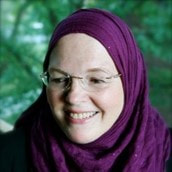
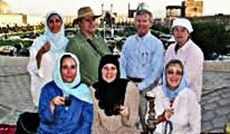
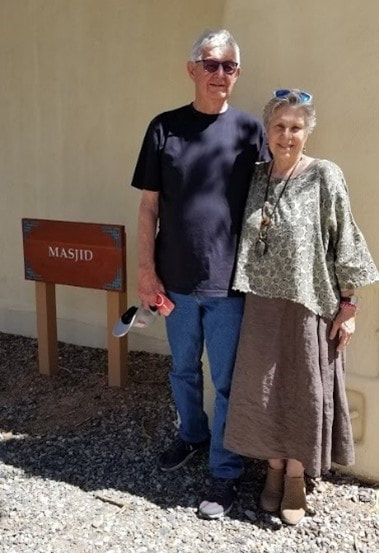
 RSS Feed
RSS Feed